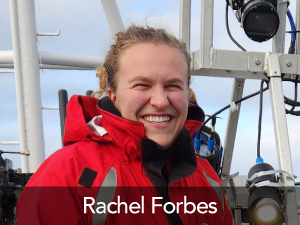Fisheries Science
Why Fisheries Science @ Memorial?
Memorial’s Marine Institute offers three degree options in the area of Fisheries Science.
The degree of Master of Science in Fisheries Science (Fisheries Science and Technology) is a full-time, research-focused Master’s degree. This program is for students who aim to pursue a career in fisheries science and includes skills training that will empower students to conduct publication-quality research in any aspect of fisheries science
The degree of Master of Science in Fisheries Science (Stock Assessment) is a full-time, research-focused Master’s degree. This program is for students who aim to pursue a career in stock assessment, a discipline within fisheries science. Stock assessment professionals use data derived from many sources to construct models that inform us about biomass of organisms in the ocean and how many we can catch sustainably. While stock assessment professionals must have many of the same proficiencies as other fisheries scientists, they have an additional requirement of being experts on the mathematics and statistics that underpin this heavily quantitative field
The Doctor of Philosophy in Fisheries Science is offered to full-time and part-time students. This program is aimed at those who want to participate in the development of new fisheries science knowledge. Fisheries researchers will be equipped with a national and internationally demanded skill set that focuses on quantitative analysis, science communication and knowledge in the management and practice of North Atlantic fisheries.
Description of programs
- MSc – The MSc programs involves courses and a thesis. The MSc can be completed in two years of full-time study.
- PhD – The PhD program involves courses, a comprehensive exam, and a thesis. The program can be completed in four years of full-time study.
Contact a faculty supervisor
Graduate applicants interested in research-based programs are strongly encouraged to connect with a faculty supervisor at the time of application. Visit the Marine Institute website for a list of faculty members, their research interests, and contact information. You may also use the Yaffle search application to find a supervisor you may wish to work with.
The School of Graduate Studies offers advice on how to search for and contact potential supervisors. Need more help? Try attending one of our webinars and information sessions for prospective graduate students.
Minimum admission requirements
- MSc – Bachelor's degree (minimum second class) in an appropriate area of study
- PhD – Master’s degree in an appropriate area of study
Potential career options and outcomes
Research scientist, professor, government biologist, international fisheries policy, fisheries consultant
Graduate student and alumni profiles
Our graduate students come from all parts of Newfoundland and Labrador, Canada, and the world. View the student profile below to learn more about what they do and why they chose Memorial.
Note: All figures are in Canadian dollars and subject to change. Fees are approved by the University’s Board of Regents. In the event of a discrepancy between the fees approved by the Board and those published on this website, the fees approved by the Board will prevail. Financial policies are enforced through the Department of Financial and Administrative Services. For the complete and official list of all fees and charges, visit www.mun.ca/finance/fees/.
Program Information
Degrees Offered:
MSc (Stock Assessment, Fisheries Science and Technology)
PhD
Routes:
Thesis
Duration (Full-time students):
MSc: 2 years
PhD: 4 years
Campus:
Marine Institute
Application Deadline:
May 15 for Fall Admission
September 15 for Winter Admission
January 15 for Spring Admission
Funding:
MSc: $17,500
PhD: $19,000
More funding information
Tuition (NL students):
MSc: $635-$953/semester
PhD: $888/semester
Tuition (Other Canadian students):
MSc: $826-$1,239/semester
PhD: $1,154/semester
Tuition (International students):
MSc: $1,074-$1,611/semester
PhD: $1,499/semester
More tuition information
